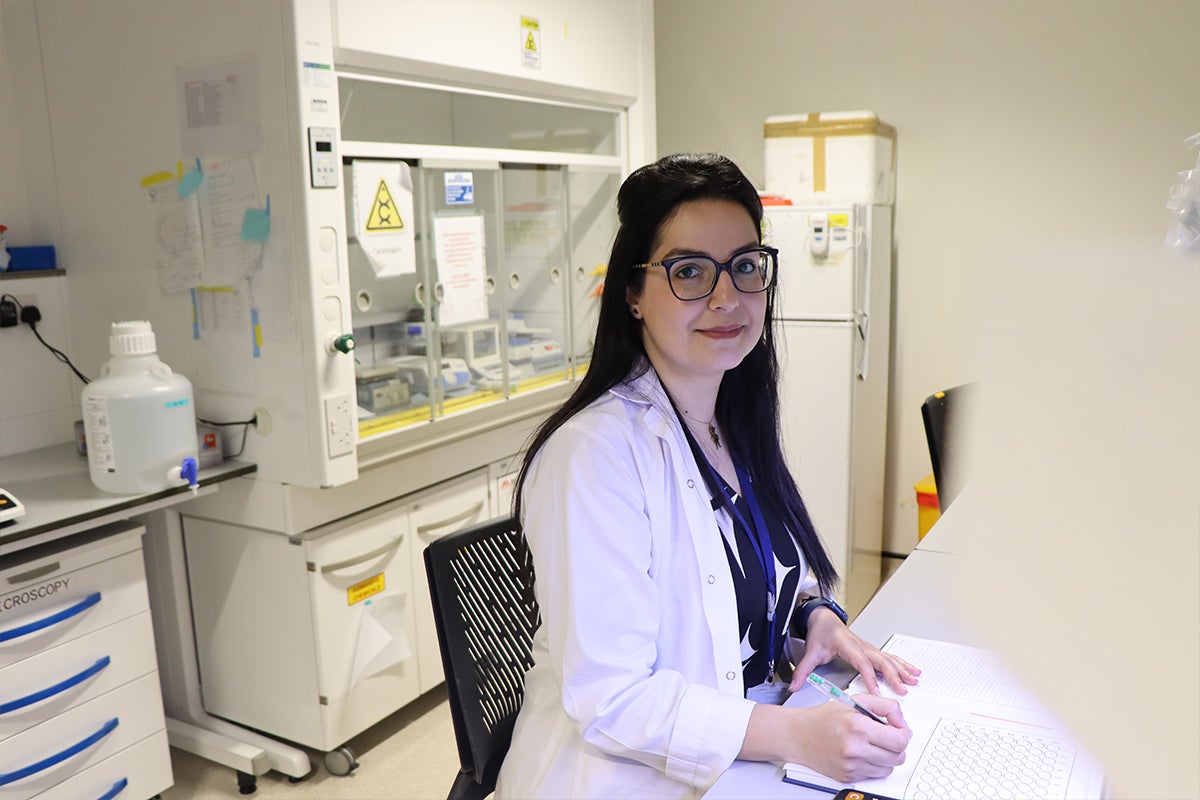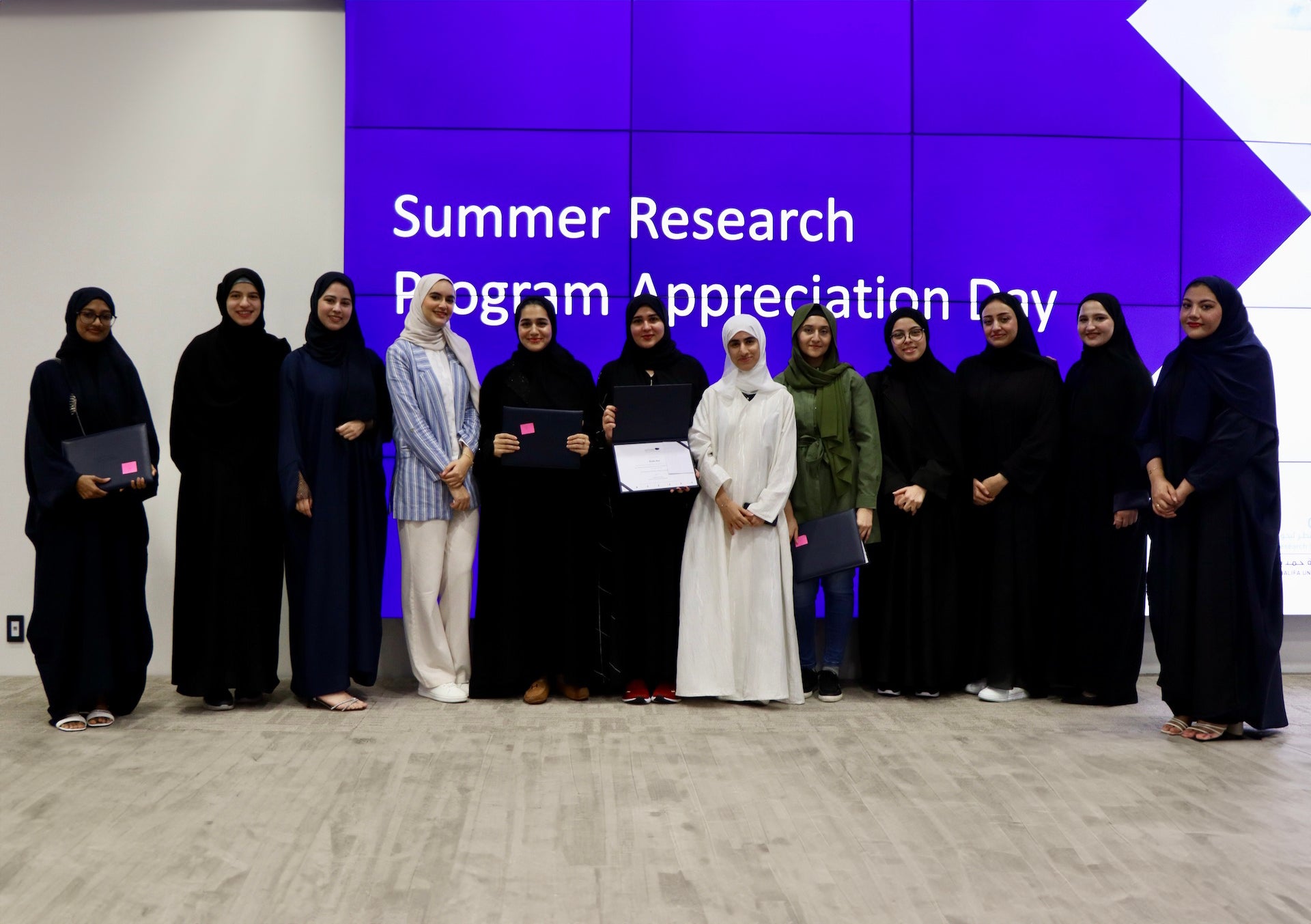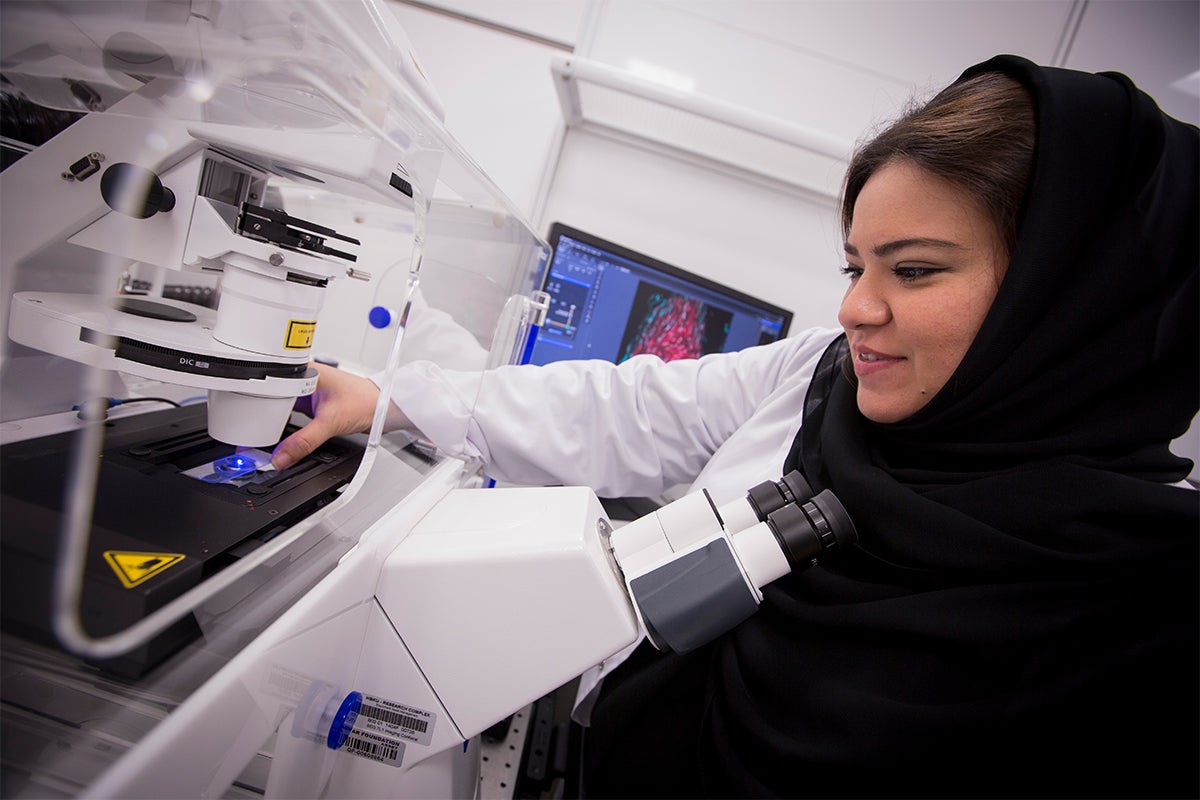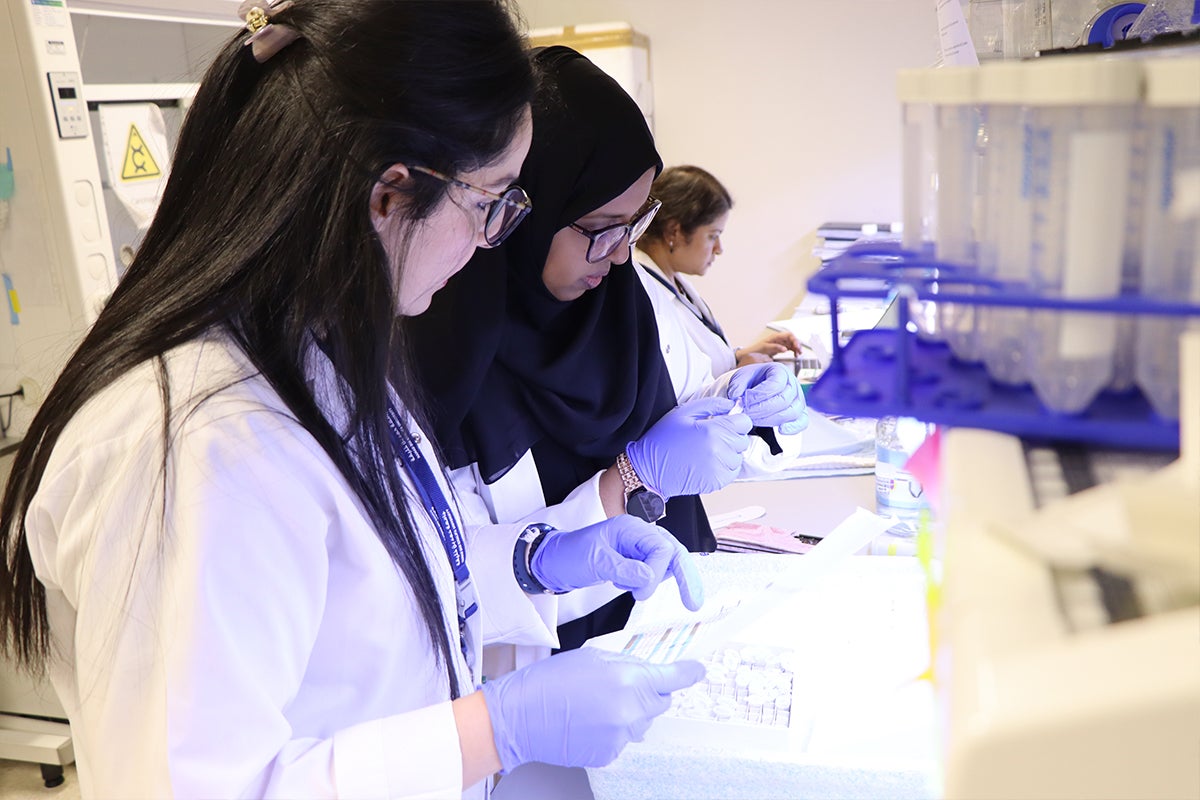HBKU marks International Women’s Day by highlighting the story and achievements that define Qatar Biomedical Research Institute’s Dr. Mariam Al-Muftah’s career.
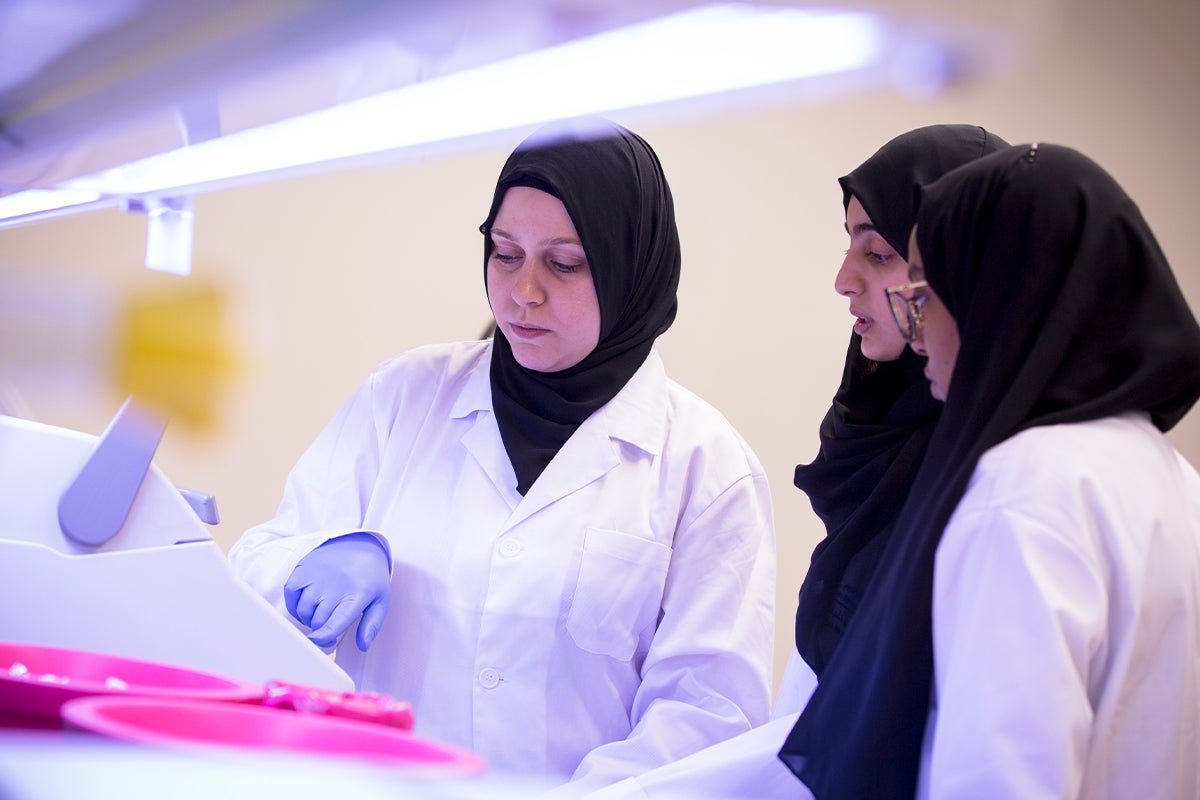
What got you interested in Science?
History has seen countless women make major contributions to science. I entered the field with the confidence that I too could make a meaningful impact through perseverance and dedication.
What inspired you from the world of science?
I've always been intrigued by the intricacies of the immune system, which is designed to protect the body from invaders and eliminate cancerous cells. This inspired me to focus on understanding how cancer cells can evade this protection and how to leverage the power of the immune system to fight cancer. This is called immunotherapy which has received recent approvals for the treatment of breast cancer patients that could not otherwise benefit from available treatments. This hope for patients and their loved ones is what drives and rewards me as a researcher, particularly given the impact of breast cancer on women.
As a female how were you able to get into and succeed in the world of science?
In the biological sciences, women comprise a significant proportion of the workforce and contribute to the economic force worldwide. As we celebrate International Women’s Day and last month’s Day of Women and Girls in Science, I'd like to offer some advice based on my experiences as a female scientist. To begin, I pursued higher education as early as possible, completing a Master of Research that exposed me to three distinct research areas. By embracing curiosity and seeking out different opportunities, I was able to broaden my knowledge and make informed decisions about my career path. Throughout my higher education I continued to join different research and development training programs and workshops including entrepreneurship to challenge and expose myself to a commercializing world. Following the completion of my PhD in Medicine, I pursued a specialized master’s degree in Business Unit Management to develop greater managerial skills and competencies that will further strengthen my leadership side.
What message do you have for any aspiring female scientists?
Seek advice from mentors, gaining hands-on experience, and participating in training programs and workshops can enhance critical thinking and decision-making skills, allowing women to compete with men and progress up the career ladder. Enhancing emotional intelligence (people skills) such as how a person perceives and expresses self, how to perceive others and use this information to guide them, and how to cope with challenges and decision-making, is essential for navigating the social dynamics of the workplace. Networking is also key, as it allows women to develop professional relationships that can help them advance in their careers.
Today is International Women’s Day. What more needs to be done to advance women’s contributions to scientific research and development?
Success in science can be challenging, and women face unique barriers to advancement, such as pregnancy, childhood, and motherhood. Interruptions in their careers are common, and achieving a balance between professional work and motherly responsibilities can be a struggle. In scientific research, this struggle can be further exacerbated by the high level of commitment required in the laboratory in terms of time and effort.
To encourage more women to make greater contributions in science, we must recognize and address these challenges. Greater consideration of women’s circumstances and flexibility can allow women to achieve a better balance and make progress in their careers. This can include providing maternity and paternity leave, flexible work schedules, and support systems for working parents.
As we celebrate International Women’s Day, I hope that my experience and advice can inspire more women and girls to pursue careers in science. By addressing these challenges and promoting a supportive and inclusive environment for women in science, we can encourage greater participation and contributions by women, leading to a more diverse and innovative scientific community.
Dr. Mariam Al-Muftah received her BSc in Medical Genetics (Honors) from the University of Wales (2005), a Master of Research (MRes) in Biological Sciences (2007), PhD of Medicine (cancer immunotherapy) as a joint project between the Cancer Research UK Manchester Institute and University of Manchester (2011) and a specialized master’s degree in Strategic Business Unit Management from HEC Paris (2015). She is currently a Scientist at Qatar Biomedical Research Institute and a joint Assistant Professor at the College of Health and Life Sciences at Hamad Bin Khalifa University.
Related News
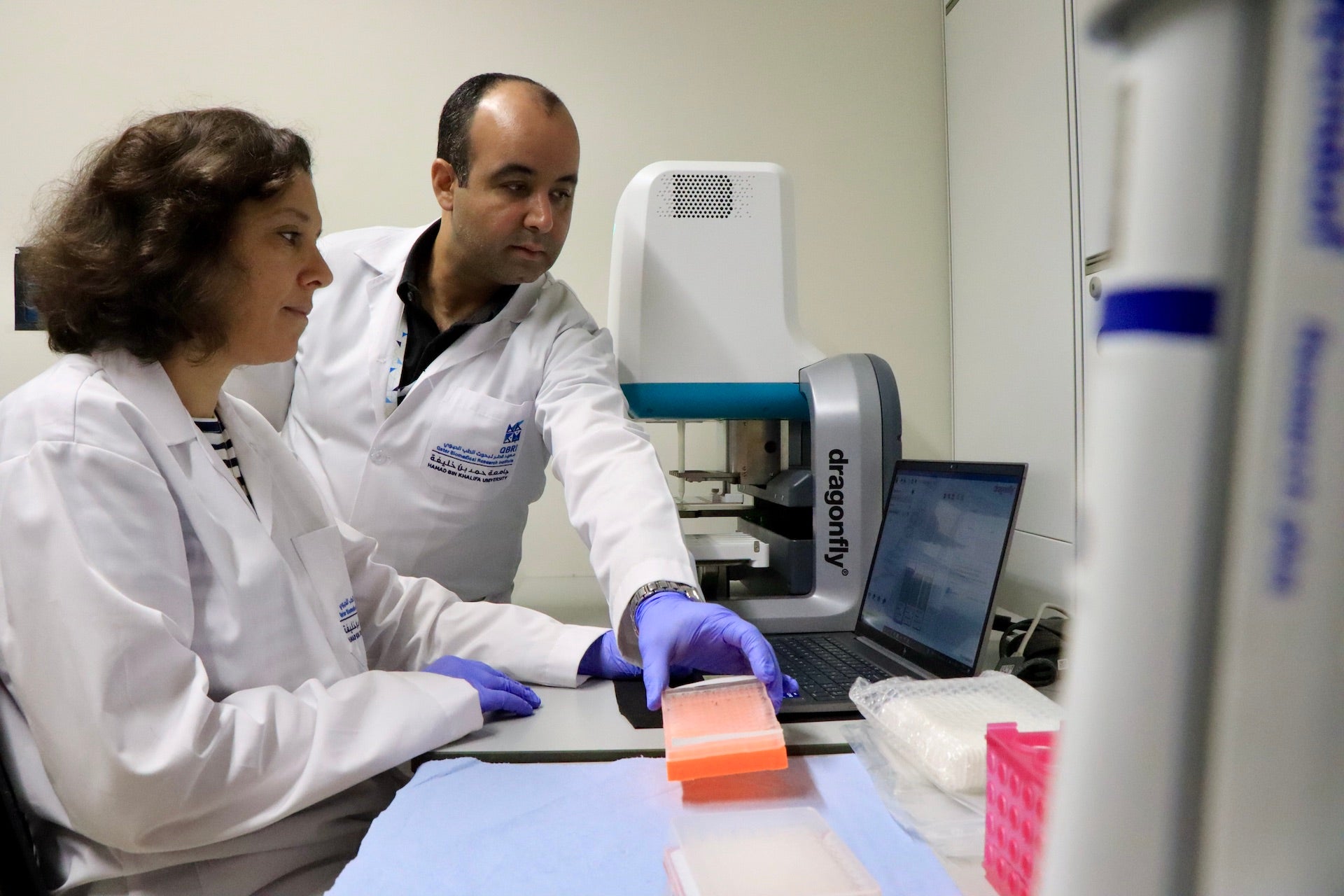
Extensive Collaborations and Unique Technical Capabilities Unveil Neurological Protein Signature of Severe COVID-19

Advancements in Type 1 Diabetes Treatment: FDA Approves CellTrans' Lantidra Cell Therapy
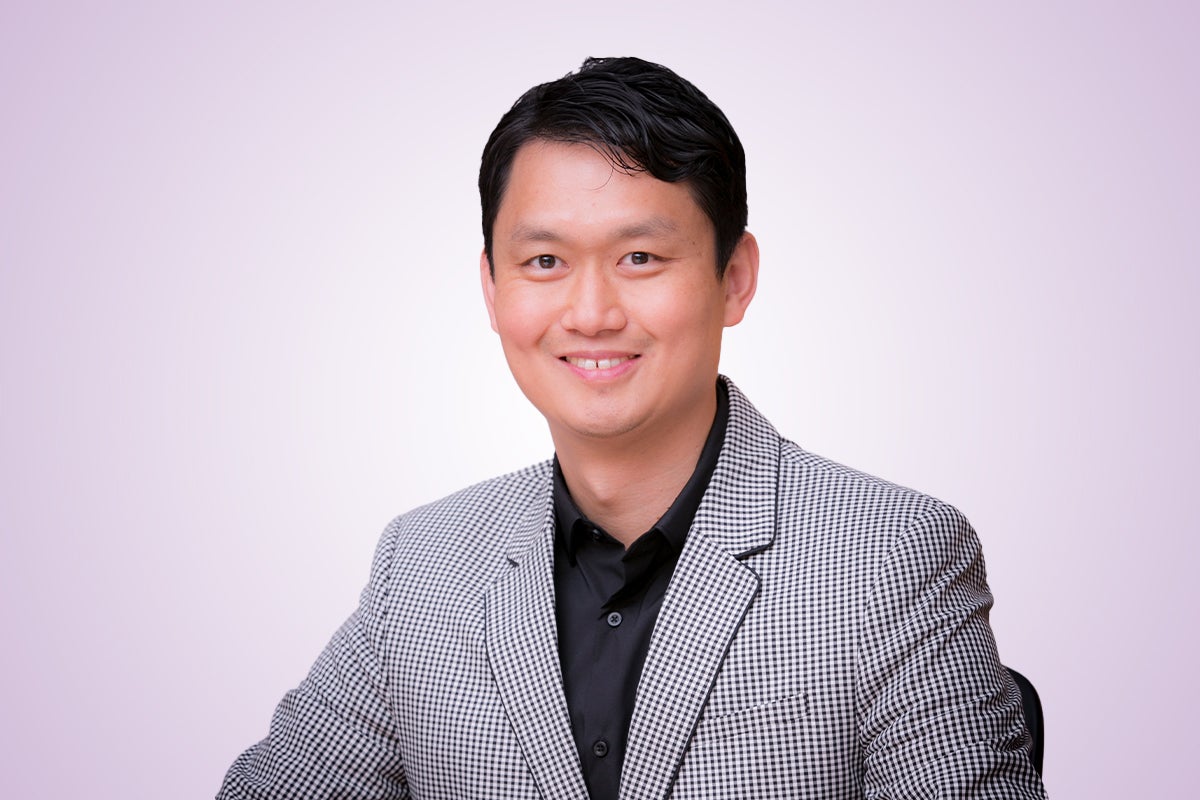
Landmark Study by QBRI Unveils Impact of Cholesterol on Neurodegenerative and Neurodevelopmental Disorders
